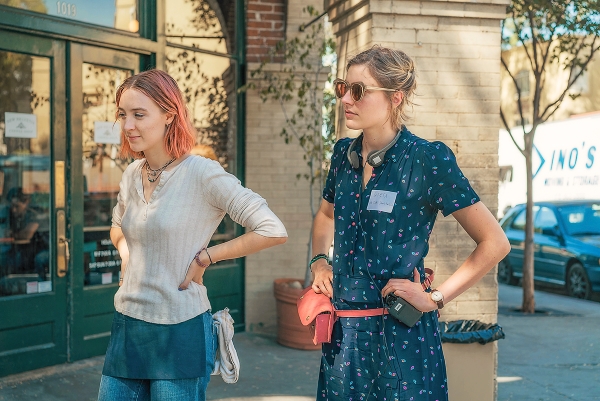The theatricality of the Catholic liturgy is a natural lure for filmmakers, whether their intentions are honourable or subversive.
Greta Gerwig, a rising Hollywood star in front and now behind the camera, mixes both in her semi-autobiographical Lady Bird (Universal).
In her dozen or more feature films to date as an actress and frequently writer and producer, she has impressed as an offbeat heroine of Greenberg (2010), Frances Ha (2012) and Mistress America (2015), all for Noah Baumbach, a maker of quirky comedies.
She has also appeared in Woody Allen’s To Rome with Love (2012), Whit Stillman’s Damsels in Distress (2011), Lola Versus (2012) and last year’s Jackie, as well as a number of low budget productions known as “mumblecore” for their lack of clear dialogue, handheld photography and outdoor locations.
Lady Bird is in a much higher class as a studio movie with all the trimmings while sticking with realistic characters and narrative.
It is based on Gerwig’s experience in her final year at a Catholic high school in Sacramento, capital of California and depicted as a safe if boringly bourgeois place to grow up (Gerwig was born there in 1983).
Nothing wrong with that, of course, except no one makes interesting movies about them.
Gerwig, as writer-director, hands her persona to American Irish actress Saoirse Ronan, who featured in Sir Peter Jackson’s The Lovely Bones (2009) and more recently in Brooklyn. Though 23, her fragile looks enable her to play 17-year-old Christine, who has magenta-coloured hair and prefers to be known as “Lady Bird”.
She is a born rebel, disrupting the aforementioned liturgical side of school, including a pro-life lecture, gorging on communion hosts (yet to be consecrated, she claims) and seeking the attention of boys.
Mainly, she wants to attend university in the “east” — where she thinks life will be much more interesting — and pursue her (modest) creative talents as an artist and performer.
At home she is just as infuriating, particularly to her harassed mother (Lauren Metcalf), who slaves in double shifts at a hospital because the father (Tracy Letts) is unable to get back a middle-class job.
The economic tensions are of little interest to Lady Bird, thanks to her father’s indulgence, and every conversation with her mother turns into a shouting match. These, and other scenes with female peers, boyfriends and teachers, are all minor triumphs.
Lady Bird may lack originality, given Hollywood’s appetite for turning out youth-oriented material, but nor does it strain for shock value, hyper-sexuality or sentimentality.
The realism is reinforced by the excellent casting of Lady Bird’s best friend, who has a weight problem (Beanie Feldstein), as well as Lucas Hedges (Manchester by the Sea)
and Timothée Chalamet (Call Me By Your Name) as the boyfriends.
Gerwig shows the many sides of her characters. The parents are loving as well as frustrating. The school principal (Lois Smith) is sympathetic and understanding. Even Sacramento comes out looking good by the end as Lady Bird fulfils some of her dreams and discovers life is also about thinking of others.
Rating: Restricted to audiences over 13. 94 minutes.

Reader Interactions